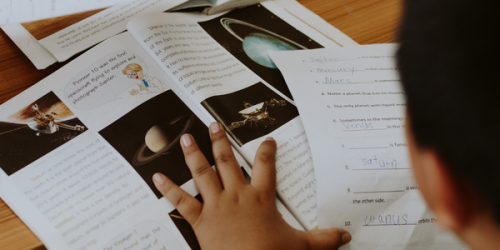It’s no secret that some elementary teachers would rather walk across hot lava than teach a science lesson and that means less science gets taught. A new study shows that improving teachers’ content knowledge may be the best way to increase their students’ science learning, suggesting that elementary teachers should take more rigorous science classes. That might sound like a no brainer, but it is amazing how often teacher content knowledge has been missing from the nation’s STEM conversation.
When Brandon S. Diamond, Jaime Maerten-Rivera, Rose Elizabeth Rohrer and Okhee Lee examined teacher characteristics that influenced student science learning, they found that teachers’ science knowledge, measured by a test, was the strongest predictor of student success in science.
Other measures were largely irrelevant, including self-reported teacher science knowledge, highest degree obtained and even the number of science courses that teachers had taken in college. The last finding is particularly intriguing because one would think that more science courses equal more science knowledge. However, there are two major shortcomings in the courses elementary candidates do take which perhaps go a long way to explain this finding.
First, candidates are often not required to take basic courses that would give teacher candidates a breadth of knowledge across important science areas. Second, elementary candidates frequently have too many choices about which science courses they can take – meaning that they may choose courses that are not relevant to teaching elementary students. So instead of taking a relevant and basic course like “Introduction to Biology,” they may take “Introduction to Astronomy” – a topic that comes up far less often in elementary schools. Or, they may select a course like “Earthquakes and Society” which, while fascinating, means that teacher candidates will be unprepared to teach anything beyond this narrow topic scope. NCTQ’s Teacher Prep Review has found that almost 70 percent of undergraduate programs do not require that teacher candidates take even one basic science survey course.
The answer is not more classes, but more comprehensive coverage of the science topics elementary teachers must be able to teach. Shouldn’t elementary students have the opportunity to learn science from a teacher who knows about earthquakes AND the rock cycle, dinosaurs AND the six kingdoms of life – and much more?
More like this

Gambling with children’s futures—and no one’s tracking whether we win or lose

Teacher Prep Review: Building Content Knowledge

What do NASA scientists, historians, and strong readers have in common? Content knowledge


